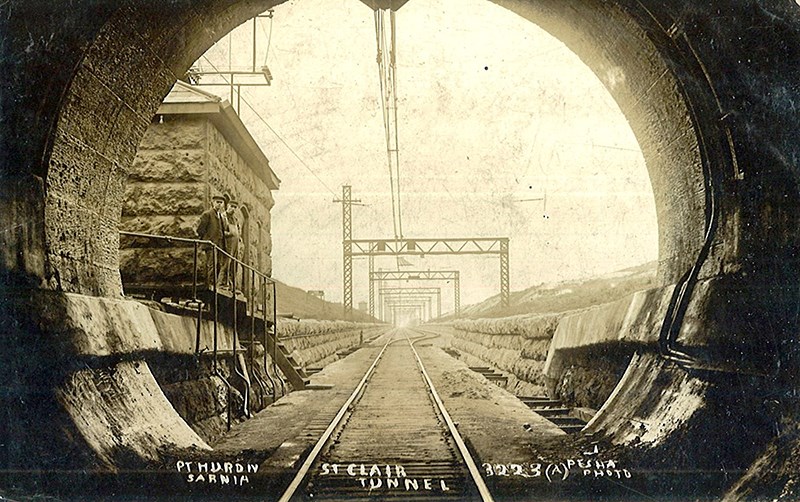
When the Second World War broke out in 1939 officials were wary of “enemy aliens” in Sarnia and the risk they might pose to security.
The newly opened Blue Water Bridge was moving war goods and materials, and Imperial Oil was producing aviation fuel, gasoline and other products essential to Canada’s armed forces.
Polymer was about to become a major war industry and Mueller Manufacturing, Holmes Foundry and Electric Auto-Lite were all busy cranking out war munitions.
The fear of attack spread deeper after someone tried to sabotage a shipment of valuable aircraft engines in the St. Clair Tunnel, in June of 1940.
In response, the RCMP in Sarnia issued a sharply worded public warning.
All “enemy aliens,” whether naturalized or not, were ordered to present themselves at RCMP headquarters for registration. Those suspected were all citizens of German or Italian birth resident in Sarnia.
“Some of these people apparently do not realize that there are very serious penalties provided for those who fail to report to us,” one officer said.
“It is absolutely necessary that the registration be completed at the earliest possible date.”
It wasn’t the first call for enemy alien registration, but local authorities were concerned that only “a small percentage” of those believed to be living in the city and instructed to register had done so.
The prevailing mood in Sarnia can be gauged by the arrest of an Italian man named Pasquale Cocco.
Cocco was taken into custody on suspicion he was a member of the Canadian branch of the Fascist Party and held by police for a week.
Fascist governments in Germany and Italy were at war with Canada, and the Defence of Canada Act had declared the Fascist Party to be an illegal society.
Cocco denied he was a Fascist. He described himself as an Italian “naturalized in Canada and a loyal citizen.”
The Crown Attorney, H.M. Taylor, told the magistrate he was “of the opinion that (Cocco) is a member of that society but have not been able to produce the evidence to prove it.”
Even his defence lawyer, J.G. Logan, said, “If he is not what he says he is, he will have to be punished.”
Cocco was released after a week in custody. The magistrate, C.S. Woodrow, advised him to “keep quiet.”
“I want to warn you and others like you that these are troublesome times and that you must behave,” he said. “The people’s righteous anger has been aroused.”
They were anxious times, when Sarnians feared the danger of saboteurs in its midst.
